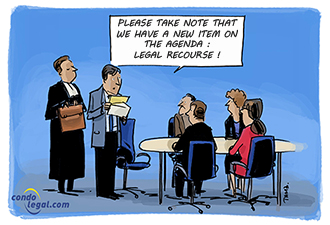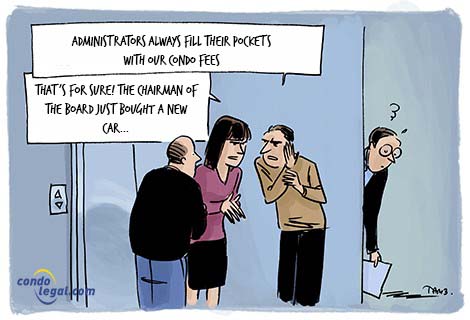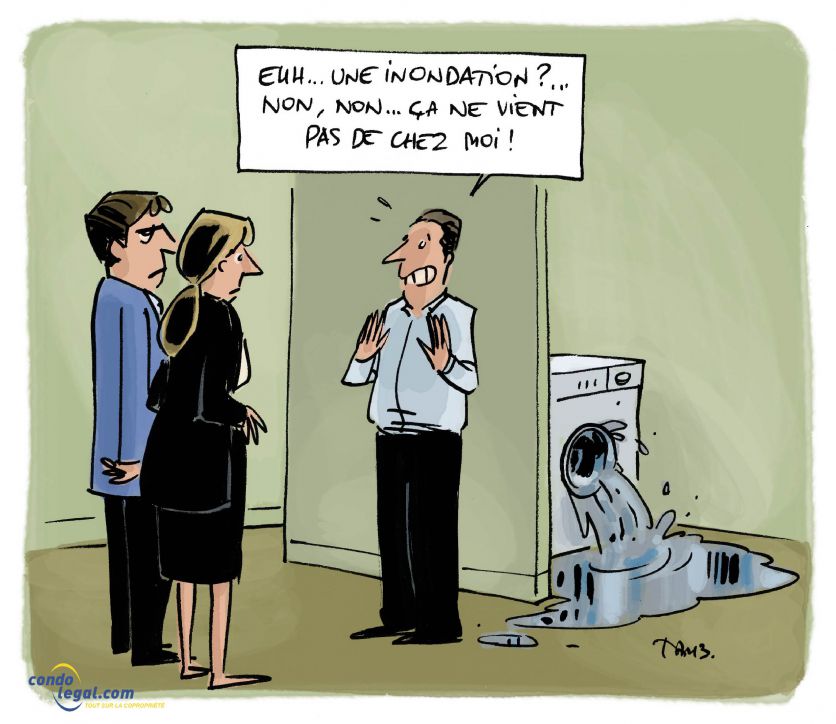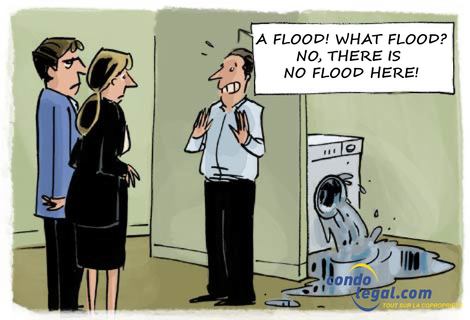Voluntary or involuntary act, or an omission which infringes upon the right of another on account of the damage suffered. The fault arises when an individual adopts a behavior contrary to that of a reasonably prudent and diligent person, who would be placed in a similar situation. It can engage the civil liability of the person who committed it.

13/11/2024
A recent decision by the Court of Québec provides important clarifications for co-ownership syndicates seeking to recover insurance deductibles from co-owners in the event of a claim. In this ruling, the Court dismissed a syndicate’s request for a co-owner to reimburse a deductible of $50,014.13 following water damage that occurred…...

23/07/2024
The juridical personality of the syndicate is distinct from the one of the co-owners and directors. His acts are binding only on himself, besides for the exceptions provided by law. The faults committed by the syndicate have consequences only on its own civil liability and not on the directors. Under these conditions,…...

01/07/2024
Co-ownership is an environment conducive to conflict and acrimonious exchanges. Some people who are members of a community of co-owners are sometimes victims. This can happen at an annual meeting, when spirits are heating up and frustrations are at their peak. Latent conflicts between a co-owner and a director, deep…...

01/07/2024
A bathtub or a washing machine that overflows into the apartment below, a water heater that conks out and spills down six floors: losses involving the civil liability of a co-owner are many co-ownerships. And they are expensive! This is why the amount of insurance premiums and deductibles have increased significantly in…...

23/06/2024
Declarations of co-ownership generally include a clause that holds each co-owner responsible (towards the other co-owners and the syndicate) for damages caused by their fault or negligence and by the fact of a property for which they are legally responsible. In the case Syndicat de la copropriété 650 Marcel-Laurin c. Neng (2024…...

16/06/2024
The contingency fund constitutes first and foremost a prevention tool. The desire to incite co-owners to anticipate the completion of important work is not news. Prior to the entry into effect of the Civil Code of Québec in 1994, it was a frequent occurrence for a co-ownership (condominium) to have…...

25/05/2024
The additional premium is a premium that is added to the existing premium. It results from a worsening of the risk or from the assumption of a new risk. This additional premium may be imposed during the course of a contract or upon its renewal. Risks are analyzed according to…...

16/05/2024
A co-owner may be liable to the syndicate, the other co-owners and the occupants of the immovable. As stated in Article 1457 of the Civil Code of Québec, every person has a duty not to harm others. As a co-owner, you must be careful and abide to the appropriate rules of…...

18/03/2024
In a divided co-ownership, most storage water heaters (electric or gas) play an essential role in the daily comfort of residents; typically installed inside the apartments, these devices are considered to be part of the private portions thus falling under the individual responsibility of each co-owner and so, it is imperative for them to ensure…...

12/03/2024
Water damages are the most frequent loss in co-ownerships (condominiums). The concept of water damage also includes the civil liability of the syndicate, the co-owner and the lessee (tenant) who could be responsible in the event of damages suffered by third party members; thus, the question of who is responsible for this constantly…...
